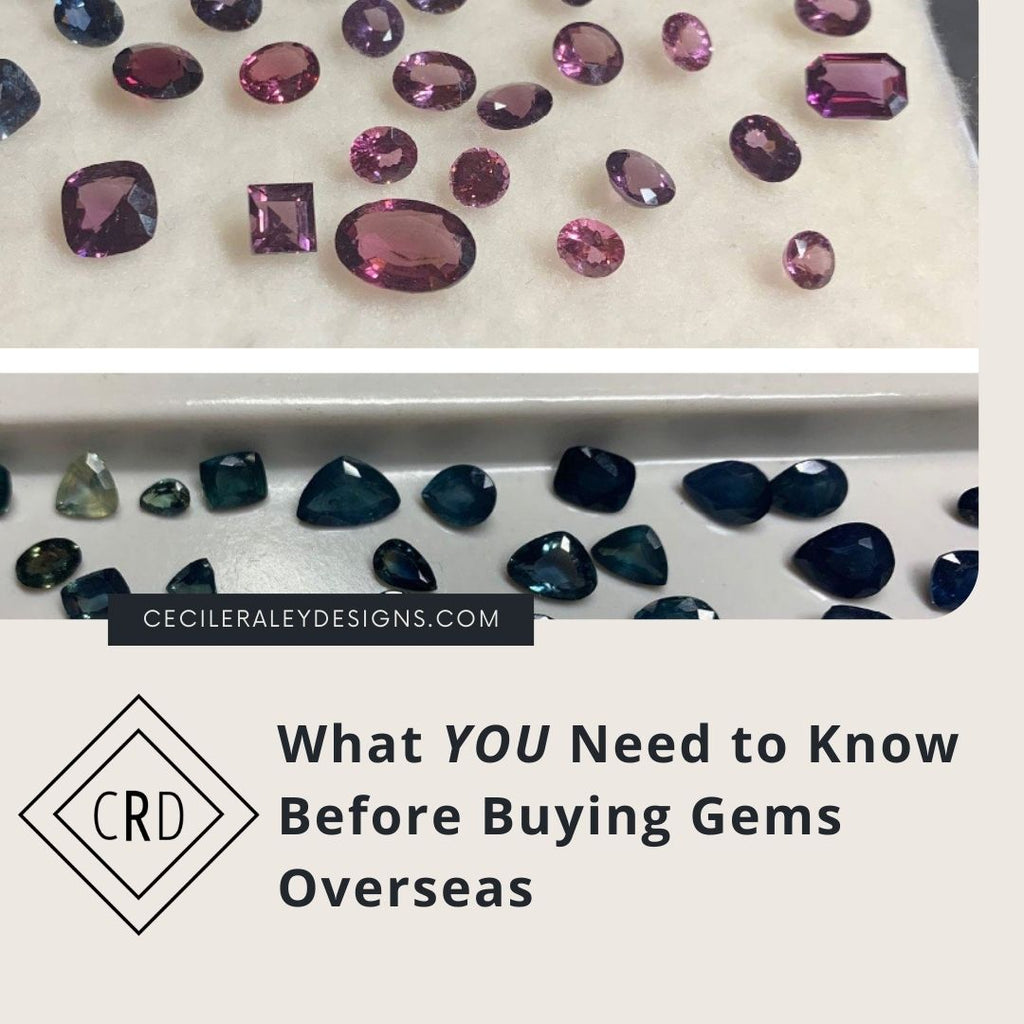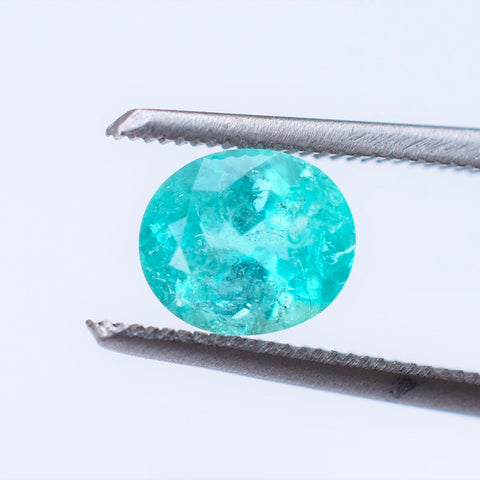What You Need to Know Before Buying Gems Overseas

A couple of weeks ago a new client asked me if “sellers from India have genuine natural gems at low cost”? It was a strange question to pose to me I thought, since I am a gem seller and I am based in the US. Was she trying to ask me about my competition?
Well, I tend to take questions at their face value and just try to answer them, and my answer to her is what forms the basis of this blog.
The short answer to the question as posed is yes. Yes, sellers from India have natural gems for sale and yes, they are genuine gems. Yes, they are at times low cost. But this is not the whole story, as it is uninformative at best. The better question to ask is if it is worth it for you to spend more money and to buy in the US. My somewhat biased answer to that question is also yes, but I don’t mean that to be self-serving. Why, then, would I say this?
- Consumer Protection Laws: the US, the EU and some other rich countries have enacted — and are able to enforce — an extensive set of consumer protection laws. These laws, first enacted in the 1960s, are exactly that. They protect and favor the consumer, not the seller. The assumption behind these laws is that the consumer is at an epistemic disadvantage. She or he is not assumed to know as much about the product as the seller. These laws obligate the seller to make full and truthful disclosure about the product, including risks (i.e. with toys and cleaning products) that the consumer may not anticipate. If the seller is not truthful and can be proven wrong, the buyer can get refunded and the seller can get into big trouble. Additionally, a buyer has protection with any PayPal, Etsy and Credit Card transaction, and this protection is again easier to enforce within the US (or EU).
India does not have the economic wealth to set up the necessary bureaucracy to enforce extensive consumer protection laws, and the US has no international jurisdiction to obligate sellers in other countries. While you can leave a bad review and a shop can be closed down if it's hosted by a marketplace like Etsy, nothing stops the company from reopening under a different name. In the US, this can be more difficult.
- Laboratory Services: not all gem labs have the same standards, and some international labs in Bangkok, India and Sri Lanka even have the reputation of favoring the seller. This does not have to mean falsifying reports, it just means that information can be inflated, or it can be left undisclosed. Reliable labs are AGL and GIA in the US, Dunaigre in Switzerland, GRS in Switzerland and the US, among others. Again, US, EU and also Swiss laws, are strict and enforceable, even if the standards are non-uniform. Additionally, there are certain organizations such as the American Gem Trade Association, that can require additional standards. And last but not least, gem businesses in the US have to sign anti-terrorist agreements that prevent them from buying goods that support the terrorist trade, and they can be closed down and prosecuted for not abiding by these agreements.
- Related to that, some overseas sellers offer “certificates of authenticity” for their gems. I get asked if I provide these all the time. I don’t because frankly, I don’t know what such a thing would be. Buyers get a bill of sale, or a receipt (from Etsy, let’s say) and this provides them with the information about the gem: size, origin, treatment, dimensions, cost. And they can request an independent laboratory certificate from GIA for instance. What, in addition, does an in-house printed “certificate” do? Nothing - anyone can print it from home. It has neither additional value nor does it additionally protect the buyer.

Actual lab cert from GAL
- Quality Control (or selection of better quality gems): buying from a wholesaler, as opposed to a retailer, often implies that the buyer commits to a piece from a larger parcel, or an entire parcel, or a lower quality single gem (say for instance a gem with window or less desirable color, a sapphire with more zoning, a ruby that looks blackish). Many overseas sellers have to move more product than just a single stone here and there because they have often committed to a larger quantity of gems, and if they offer these cheaper than, for instance, US sellers, it makes no sense for them to curate and select the best specimens. They may do so for more valuable material but they may correspondingly raise the price to more of a retail level because of the additional labor involved. But in the latter case, they may not be underbidding the US market by that much in the end.
What you can and often do save on is the customer service, however. Labor is cheaper in many overseas countries and so it is easier to ask someone to match pieces for you, send extra photos and video. For us, by contrast, this is an expensive endeavor and hence we do not always provide that extra service. Gems under $50 for instance, are not gems for which we want to spend the time to provide video. But for a seller in Brazil, let’s say (just to pick a different country) where the minimum wage is $1.1 per hour, as opposed to $7.25 an hour in the US ($12 in NJ) and a $50 gem can be marketed with more manpower.
Now, does this mean you should not buy internationally? No it doesn’t. I do as well, although I have reliable sources with whom I do a lot of business and they know my taste. I also do not pre-pay for these goods as that is not standard in the wholesale market. As all sales are final, I pay after inspection, not before, and I have the right of refusal if the goods are not what I expected. As you can imagine, this requires a degree of trust, however, and can only be sustained with an ongoing relationship that involves quantity purchases.
Secondly, if you are an informed consumer, you will be able to judge photos better, ask the right questions (i.e. is there window?), request extra photos, or a certificate from a reliable lab that you have researched. And that’s the point at which tables can be turned – if you are a very educated buyer and you are willing to spend more money on repeat business, I think you can benefit from buying internationally. However, for a less educated buyer who just wants a few smaller gems, I do not recommend this as the most logical option.




